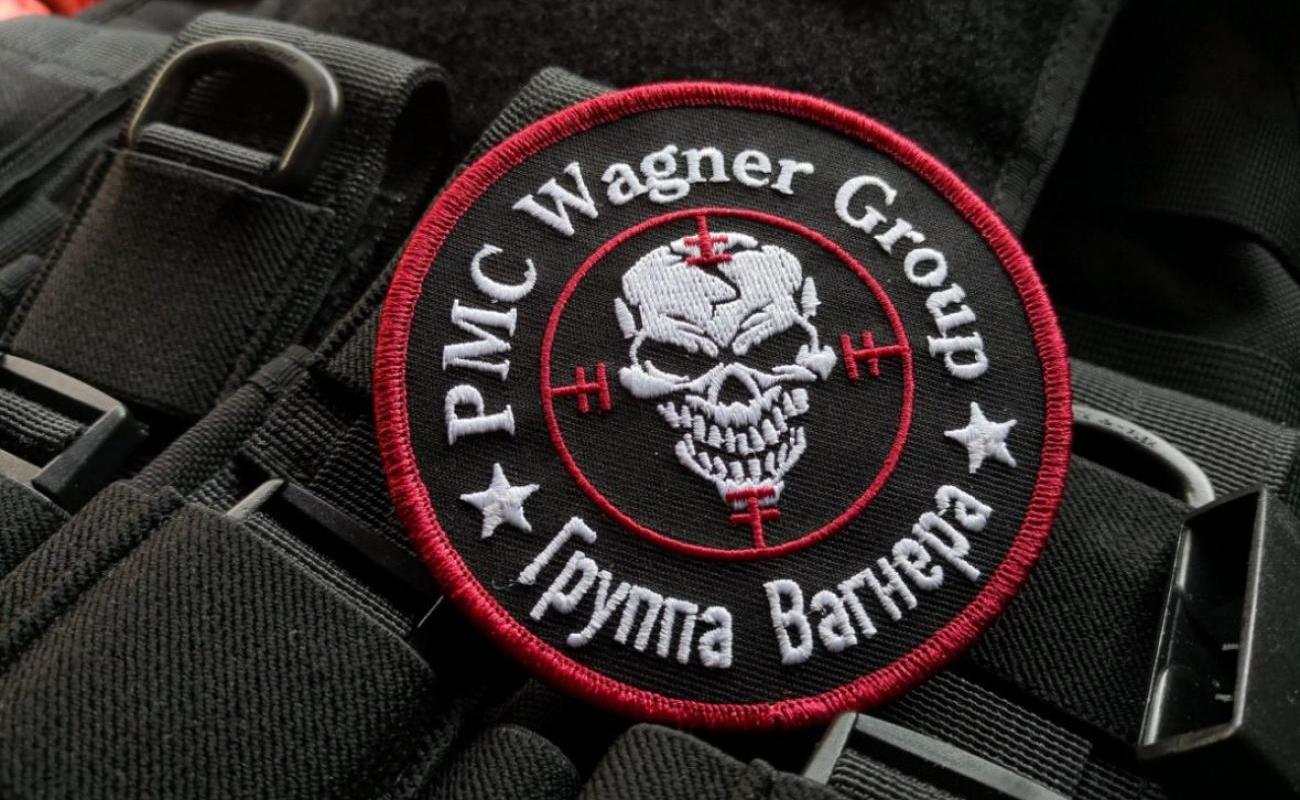Russian mercenaries in Ukraine linked to far-right extremists
Wagner Group connected to white supremacists, Tech against Terrorism investigation finds

Russian mercenaries fighting in Ukraine, including the Kremlin-backed Wagner Group, have been linked to far-right extremism including an organisation designated by the US as terrorist, analysis reveals.
Although Vladimir Putin says his “special military operation” is aimed at the “denazification” of Ukraine, an investigation has found links between pro-Russian forces and violent rightwing extremism, including those directly affiliated with Wagner.
One post on the messaging app Telegram, dated 15 March, shows the flag of the Russian Imperial Movement (RIM), a white-supremacist paramilitary organisation which the US lists as terrorist, allegedly flown by Moscow-backed separatists in Donetsk. The post was shared by a pro-Putin channel.
Adam Hadley, the executive director of Tech Against Terrorism, a London-based initiative supported by the UN counter-terrorism executive directorate, said their analysis indicated that Russian-backed forces in Ukraine, including the Wagner Group, are “almost certainly connected with extreme far-right organisations”.
Hadley added: “Given Putin’s absurd demands for the ‘denazification’ of Ukraine, we suggest he should first root out neo-Nazis in his own ranks before pointing the finger at others.”
One of the most secretive organisations in Russia, the Wagner Group doesn’t officially exist. However, reports suggest hundreds of its members are fighting in Ukraine with claims shortly after the invasion that its mercenaries were operating in Kyiv with orders from the Kremlin to assassinate the Ukrainian president Volodymyr Zelenskiy.
It is also understood that efforts are being made by private messaging groups in Russia to recruit a new brigade of mercenaries to fight in Ukraine. Recently, the Russian defence minister, Sergei Shoigu, announced that 16,000 fighters from the Middle East had volunteered to fight with the Russian army.
One account on VK is dedicated to the Rusich “sabotage and assault reconnaissance group” which appears to be operating in Ukraine, according to a post on 17 March. The Rusich logo features a Slavic Swastika known as a Kolovrat.
One image shared on VK by a Rusich-affiliated account shows fighters, seemingly in Ukraine although it has proved impossible to verify, holding a Valknut flag, a symbol also commonly appropriated by white supremacists.
It has been reported that mercenary units recruited to Wagner are being given names like “The Hawks”, possibly to steer away from the group’s reputation after repeated accusations of human rights abuses in its operations in Syria and Libya.
The Tech Against Terrorism analysis found a prominent Wagner Group-affiliated Telegram channel sharing an image in May 2021 of the Kolovrat allegedly daubed on a cliff in Palmyra, Syria.
It also found Telegram channels – named “Wagner PMC” in Russian – sharing footage and memes as recently as 4 March relating to the torture and beheading of a Syrian captive by Wagner mercenaries in 2017.
The Wagner group was first identified in 2014, when backing pro-Russian separatists in the conflict in eastern Ukraine. It is owned by Yevgeny Prigozhin, one of Putin’s closest allies, and has since conducted covert operations across Africa and the Middle East.
Military experts believe that mercenaries allow the Kremlin – which has always denied any links with mercenary groups – to keep its death toll down.
In an effort to control its narrative, Russia recently opened a criminal case against Facebook’s owner, Meta, accusing it of being an extremist organisation.
The move by Russian prosecutors came after the the US tech giant temporarily allowed the use of terms such as “death to the Russian invaders”.
Hadley added: “We condemn Russia for weaponising terrorism in this way and subverting international counter-terrorism norms.”
